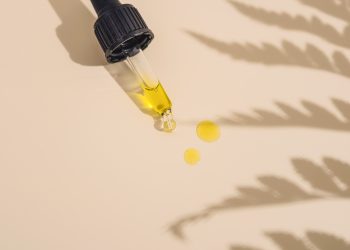What exactly is Delta 8 Distillate?
Contents
In chemistry, any substance extracted by distillation and then separated from the original compound through distillation is known as distillate. The distillate from Delta 8 THC is highly viscous, fluid, and dark that contains a significant portion of Delta 8 and, in tiny amounts, small amounts, and cannabinoids.
The distillate is the purest and most concentrated version of Delta 8 available in the market. This distillate is separate from waxes and terpenes, leaving only the pure substance to be found. This is the most potent product that is available. Certain companies mix other substances to boost their effects, for example, CBD and CBN.
How are Delta 8 Distillates Created?
The Delta 8 Distillate name implies that the strains are produced through a thorough screening process known as distillation. Delta 8 is usually formed by consuming CBD and is then distilled to obtain each component separately.
Fractional distillation is a multi-faceted method that can be utilized to separate compounds according to the boiling point. The procedure for separating a compound into fractions is very straightforward, and the steps are as follows:
The process begins by gradually heating the cannabinoid mixture in a large flask and slowly increasing the heat. The temperature rises until it is at the threshold of the most volatile compound present in the mixture. This causes the solution to shrink and separate from its liquid mother body.
Then, in gaseous form, the fragment is pushed through tubes and then into the condenser. Condensers help to de-liquefy the compound and allow it to flow down into the beaker. What remains inside the beaker is a pure substance ready to process.
This process of distillation is the way we can make a separation between water and alcohol. Water boils at 100°C while ethanol boils at 78°. If we raise the temperature to 78 degrees, the ethanol will all be boiling, leaving the water behind. The crude blend composed of Delta 8 THC is separated from other compounds such as CBD, Delta 9 THC along Delta 10 THC, among other substances.
By how the primary compound behaves, chemical engineers may need to conduct many iterations of this procedure to obtain a clean test that contains Delta 8 THC. A variety of tools and techniques can be used to achieve the extraction from Delta 8 THC, such as thin-film distillation or shorter path distillation. The principle of operation behind all of them is the same.
Distillates and Oil: What’s the difference?
As in the case of the product, the distillate can contain more than 100% Pure Delta 8 THC and is the most concentrated version of the substance that is available. However, Delta 8 THC oil is created by diluting distillate with oils, including coconut, hemp, or MCT. The diluting of the compound by using oil makes it simpler to make a smaller amount and, in general, enhances the substance’s taste.
The most efficient method of doing this is to use droppers to allow a couple of drops to drop onto your tongue. As we’ve said before, drinking distillates on their own is possible; however, given their flavor, it can create an odor of repulsion. It’s best for dab rigs, although gummies are also available on the market.
Is Delta 8 THC Legal?
As is the norm for cannabis extracts, the legality is discussed to evaluate the possibility of acquiring the extract and, obviously, the use. In a nutshell, the issue remains unanswered within this area in the United States. While most experts believe that Delta-8 THC is legal across the US, a few states have banned any marijuana derivative and its components completely. But whether this law applies at a federal level is a matter of debate.
According to a statement issued by the DEA, any synthetic or derived from THC products are prohibited. The statement is unclear, gives little or no explanation, and is often misinterpreted. Many have used use of it as a basis for arguments. Many factors have led to the fact that the production of Delta 8 THC distillate involves transforming into a naturally-occurring compound that is artificially derived. Other sources suggest that the preparation in a lab indicates that the product has been created in a laboratory.
On the other hand, cannabis use and its derivatives have been legalized in Canada. This is in distinct contrast to the legislation of Australia, Britain, and the majority of Europe, which has specifically banned all kinds of THC.











